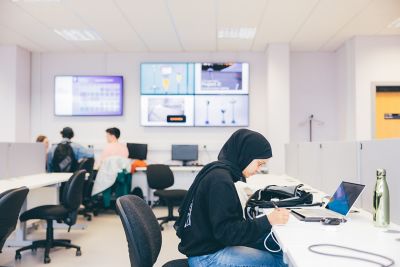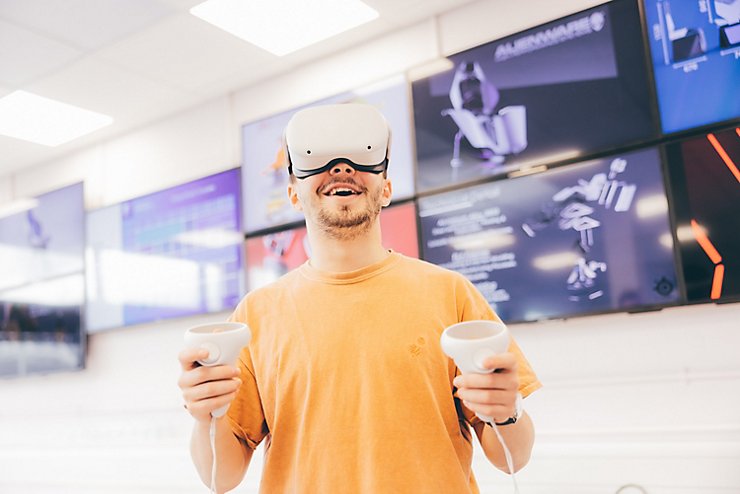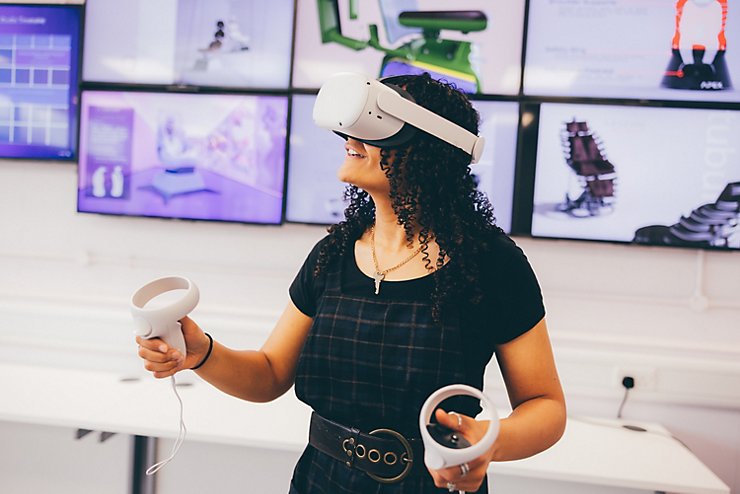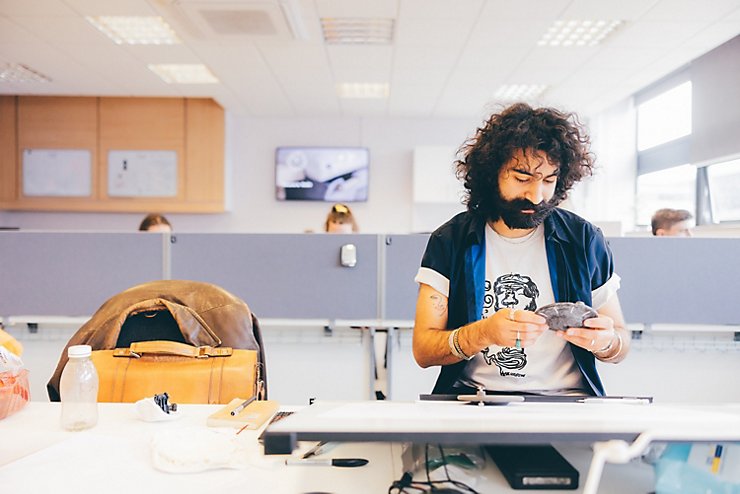The first year shares some modules with the department's other engineering degrees and will therefore give you a broad foundation in engineering science and design, manufacturing processes, material selection and behaviour, mathematics and management.

Clearing places are available for this course
UK students, call us on 0330 041 5590 if you have Clearing queries.
International students, contact us through our enquiry form.
| Qualification | Start Date | UCAS code | Duration | Fees |
|---|---|---|---|---|
| BEng Hons | September 2024 | H71X | 3 years full-time | £9,250 per year |
| Qualification | Start Date | UCAS code | Duration | Fees |
|---|---|---|---|---|
| BEng Hons | September 2024 | H71X | 3 years full-time | £9,250 per year |
Course information
-
This course is accredited by the IET (Institution of Engineering and Technology) to meet the further learning requirements of a Chartered Engineer.
In addition to the IET, this course is also accredited by the Institute of Engineering Designers (IED).
This course is accredited by the IET (Institution of Engineering and Technology) to meet the further learning requirements of a Chartered Engineer.
In addition to the IET, this course is also accredited by the Institute of Engineering Designers (IED).
-
Start date:September 2024September 2024
-
UCAS Code:H71XH71X
-
Compulsory year abroad
On this course, subject to you meeting the relevant requirements, your second academic year will be spent studying at University of Nottingham China or University of Nottingham Malaysia. The curriculum is exactly the same as that of the UK and all teaching is in English. Your year will be spent studying core modules, and depending on the subject specialisms you have selected, appropriate optional modules. Alternatively, you could apply to spend the year at one of our partner universities, however places are extremely limited and there is no guarantee that you would be able to study at a partner institution.
Please note
In order to undertake a compulsory year abroad, you will need to achieve the relevant academic requirements as set by the University and meet the selection criteria of both the University and the partner institution. The partner institution is under no obligation to accept you even if you do meet the relevant criteria. If you do not secure a year abroad opportunity, you will be transferred to the version of the course without the compulsory year abroad element, and you will complete all years of study at University of Nottingham, UK.
Important information
Please be aware that study abroad, compulsory year abroad, optional placements/internships and integrated year in industry opportunities may change at any time for a number of reasons, including curriculum developments, changes to arrangements with partner universities or placement/industry hosts, travel restrictions or other circumstances outside of the university’s control. Every effort will be made to update this information as quickly as possible should a change occur.
Compulsory year abroad
On this course, subject to you meeting the relevant requirements, your second academic year will be spent studying at University of Nottingham China or University of Nottingham Malaysia. The curriculum is exactly the same as that of the UK and all teaching is in English. Your year will be spent studying core modules, and depending on the subject specialisms you have selected, appropriate optional modules. Alternatively, you could apply to spend the year at one of our partner universities, however places are extremely limited and there is no guarantee that you would be able to study at a partner institution.
Please note
In order to undertake a compulsory year abroad, you will need to achieve the relevant academic requirements as set by the University and meet the selection criteria of both the University and the partner institution. The partner institution is under no obligation to accept you even if you do meet the relevant criteria. If you do not secure a year abroad opportunity, you will be transferred to the version of the course without the compulsory year abroad element, and you will complete all years of study at University of Nottingham, UK.
Important information
Please be aware that study abroad, compulsory year abroad, optional placements/internships and integrated year in industry opportunities may change at any time for a number of reasons, including curriculum developments, changes to arrangements with partner universities or placement/industry hosts, travel restrictions or other circumstances outside of the university’s control. Every effort will be made to update this information as quickly as possible should a change occur.
-
*For full details including fees for part-time students and reduced fees during your time studying abroad or on placement (where applicable), see our fees page.
If you are a student from the EU, EEA or Switzerland, you may be asked to complete a fee status questionnaire and your answers will be assessed using guidance issued by the UK Council for International Student Affairs (UKCISA).
Additional costs
All students will need at least one device to approve security access requests via Multi-Factor Authentication (MFA). We also recommend students have a suitable laptop to work both on and off-campus. For more information, please check the equipment advice.
As a student on this course, you should factor some additional costs into your budget, alongside your tuition fees and living expenses. The following are based on the total four years of the course. You should be able to access most of the books you'll need through our libraries, though you may wish to purchase your own copies or more specific titles which could cost up to £200.
We ask that all students have access to their own laptop or computing device (Windows is always the best options for our engineering software). You will be able to access all of the software that you will require, either through a remote desktop or we will provide you with copies for use during your time at the university. Information of the recommended minimum specifications can be found on the university webpages.
Please note that these figures are approximate and subject to change.
Scholarships and bursaries
The University of Nottingham offers a wide range of bursaries and scholarships. These funds can provide you with an additional source of non-repayable financial help. For up to date information regarding tuition fees, visit our fees and finance pages.
Faculty-specific funding
In addition to the above, students applying to the Faculty of Engineering may be eligible for faculty-specific or industry scholarships.
International students
We offer a range of international undergraduate scholarships for high-achieving international scholars who can put their Nottingham degree to great use in their careers.
*For full details including fees for part-time students and reduced fees during your time studying abroad or on placement (where applicable), see our fees page.
If you are a student from the EU, EEA or Switzerland, you may be asked to complete a fee status questionnaire and your answers will be assessed using guidance issued by the UK Council for International Student Affairs (UKCISA).
Additional costs
All students will need at least one device to approve security access requests via Multi-Factor Authentication (MFA). We also recommend students have a suitable laptop to work both on and off-campus. For more information, please check the equipment advice.
As a student on this course, you should factor some additional costs into your budget, alongside your tuition fees and living expenses. The following are based on the total four years of the course. You should be able to access most of the books you'll need through our libraries, though you may wish to purchase your own copies or more specific titles which could cost up to £200.
We ask that all students have access to their own laptop or computing device (Windows is always the best options for our engineering software). You will be able to access all of the software that you will require, either through a remote desktop or we will provide you with copies for use during your time at the university. Information of the recommended minimum specifications can be found on the university webpages.
Please note that these figures are approximate and subject to change.
Scholarships and bursaries
The University of Nottingham offers a wide range of bursaries and scholarships. These funds can provide you with an additional source of non-repayable financial help. For up to date information regarding tuition fees, visit our fees and finance pages.
Faculty-specific funding
In addition to the above, students applying to the Faculty of Engineering may be eligible for faculty-specific or industry scholarships.
Home students*
Over one third of our UK students receive our means-tested core bursary, worth up to £1,000 a year. Full details can be found on our financial support pages.
* A 'home' student is one who meets certain UK residence criteria. These are the same criteria as apply to eligibility for home funding from Student Finance.
Course overview
Our three-year BEng Product Design and Manufacture course combines creativity with engineering principles and provides students with all the necessary skills to enter a design facing career.
The world around us is full of problems, some small inconveniences and other global challenges such as climate change. Product Designers combine a broad range of creative, engineering and manufacturing skills to produce commercially viable solutions to these problems.
Course overview
Our three-year BEng Product Design and Manufacture course combines creativity with engineering principles and provides students with all the necessary skills to enter a design facing career.
The world around us is full of problems, some small inconveniences and other global challenges such as climate change. Product Designers combine a broad range of creative, engineering and manufacturing skills to produce commercially viable solutions to these problems.
Our course utilises modern technology - from digital sketching through to high end 3D printing, rapid prototyping facilities and virtual reality equipment, to ensure our graduates leave prepared for the modern world of product design.
Students study a broad range of modules to develop practical design skills and knowledge in key areas including manufacturing, materials, ergonomics, marketing and more.
Project work is a key part of the course, responding to challenges in a variety of sectors including medical, automotive, packaging, appliances and electronic goods and many more. Projects enable you to take a realistic approach to design, utilising your taught knowledge of manufacturing and engineering principles. You’ll develop products and components that are appropriate for mass manufacture and consider commercial factors.
Our courses are delivered by academic staff who have industrial experience, in conjunction with Product Designers who currently work in industrial roles. This ensures that our course is relevant to the current needs of employers.
Explore our Product Design and Manufacture End of Year Show
Why choose this course?
- 9th in the UK for Manufacturing and Production Engineering (The Complete University Guide 2024)
- Teaching staff with industrial career experience
- New facilities including design studios and workshops boasting both capacity and capability.
- Industry technology which mirrors career practices and shows you the latest industry processes.
Important information
This online prospectus has been drafted in advance of the academic year to which it applies. Every effort has been made to ensure that the information is accurate at the time of publishing, but changes (for example to course content) are likely to occur given the interval between publishing and commencement of the course. It is therefore very important to check this website for any updates before you apply for the course where there has been an interval between you reading this website and applying.
Indicative modules
Mandatory
Year 1
Drawing for Design
Mandatory
Year 1
Dynamics of Mechanical Systems
Mandatory
Year 1
Engineering Design Project
Mandatory
Year 1
Industrial Design 1: An Introduction
Mandatory
Year 1
Materials and Manufacturing
Mandatory
Year 1
Mathematics for Engineers
Mandatory
Year 1
Statistics and Mechanics of Solids
Mandatory
Year 2
Design Communication
Mandatory
Year 2
Industrial Design 2: Skills and Knowledge
Mandatory
Year 2
Materials and Manufacture 2: Design for Manufacture
Mandatory
Year 2
Materials in Design
Mandatory
Year 2
Projects 1: Developing Design Project Skills
Mandatory
Year 2
Projects 2: Group Design Projects
Mandatory
Year 2
User Centred Research and Design
Mandatory
Year 3
BEng Major Design Project
Mandatory
Year 3
Industrial Design 3: Engineering Ecology and Analysis
Mandatory
Year 3
Major Project Preparation
Mandatory
Year 3
Materials and Manufacture 3: Polymer and Timber Processes
Mandatory
Year 3
Projects 3: Technical Design Projects
About modules
The above is a sample of the typical modules we offer, but is not intended to be construed or relied on as a definitive list of what might be available in any given year. This content was last updated on Wednesday 4 October 2023. Due to timetabling availability, there may be restrictions on some module combinations.
You will develop further design skills and commercial awareness in year two. There are several design projects throughout the year, complemented by modules in the areas of design techniques, manufacturing, ergonomics and business.
At the end of year two, you can opt to switch to the four-year MEng degree provided that you have obtained at least 55 percent in the end of year assessment. Alternatively, you can choose to remain on the three-year BEng degree.
During year two, you will also have a unique opportunity to see your academic subject from a different perspective by studying abroad in China or Malaysia. As well as starting an international network of contacts, you will discover new strengths and abilities – helping to enhance your future employment prospects.
You continue to develop design skills through project work and the modules studied become more in-depth. This includes a major design project undertaken in the final semester along with a dissertation.
Sketching; an essential skill for all Product Designers. This module will develop your sketching skills, taking you from the basics of drawing simple objects through to mastering drawing in perspective and constructing complex objects. We utilise modern and up to date technologies and as such the sketching which is taught and practised within this module will be digital and produced through the use of digital drawing devices! In this module you'll learn:
- Progressively learn to add detail to drawings.
- How to draw in 3-point perspective.
- How to draw quickly and neatly.
- To draw complex forms.
- How light and shade can explain complex forms.
- Exercises to help develop an understanding and appreciation of form.
An introductory module covering analysis methods applicable to engineering design including:
- Linear and rotational motion: Displacement, velocity and acceleration
- Relationship between angular and linear motion
- Newton's Laws for linear & rotational motion
- Linear and Angular Momentum, including conservation of momentum
- Work, Energy & Power, including kinetic & potential energy
- Geared systems
- Drive systems, including tangential drives and vehicles
- Load characteristics and steady-state characteristics
- Flywheel design
- Static and dynamic balancing
In this yearlong module you'll gain a deeper understanding of engineering design principles using practical project work. You'll learn CAD from the ground up, and by the end of the module you'll be well versed in the software.
Further you'll undertake practical workshops, where you'll learn how to use fundamental engineering machinery, which forms the basis of more advanced techniques you'll learn in higher level modules.
Topics covered include:
- Process of design supported by practical design activities
- Engineering drawing CAD solid modelling and drawing generation
- Machine elements Group Design Project with Integrated Individual Element
- Machine shop practical training
Practising Product Designers are often referred to as a jack of all trades and a master of none; This module begins a series of modules which focus on the broader discipline of Industrial Design and many topics which influence the practice that Designers need to be well versed in to create appropriate solutions to problems! To support the learning of these topics, and to begin understanding the process of design in a little more depth, students who participate in this module will undertake a short design project.
Other topics covered include:
- History of Design.
- Impact on Popular Culture.
- Role of the Designer.
- Design Methodology.
- Ethical Responsibility.
- Graphical Skills.
- Photography.
- Portfolio Skills.
- Sustainability and Ecology.
A deep understanding of both materials and manufacturing techniques used to process these materials is essential for all product designers, to produce effective and commercially viable products. This year long module introduces students to the properties of materials, the main failure mechanisms which a designer will be concerned with (e.g overload, fracture, creep, fatigue) and core manufacturing methods used in engineering applications.
It includes the following topics:
- Role of materials and material properties in the design process.
- Selection and use of materials.
- Basic science underlying material properties Approaches to avoid failure of materials.
- Introduction to manufacturing in the UK.
- Casting, machining, moulding, forming, powder processing, heat treatment, surface finishing and assembly.
- Introduction into additive manufacturing an introduction to manufacturing metrology.
This module introduces a range of fundamental elementary mathematical techniques that can be applied to mechanical engineering, manufacturing and product design problems.
The aim of the module is to provide engineering students with a base in mathematical knowledge which can then be built on if required in subsequent years, however as a product design student this will be the only maths module you will undertake.
This module includes:
- The calculus of a single variable, extended to develop techniques used in analysing engineering problems
- Advanced differential and integral calculus of one variable
- First-order ordinary-differential equations
- Algebra of complex numbers
- Matrix algebra and its applications to systems of equations and eigenvalue problems
- Functions and their properties
- Vector spaces and their applications
- Vector calculus
An introductory module covering analysis methods applicable to engineering design including:
Review of basic mechanics: vectors, units, forces and moments, Newton’s laws
Static equilibrium: force and moment analysis in design; frictional forces
Free body diagrams and Pin-jointed structures
Stress, strain and elasticity
Multi-axial stress-strain; thin walled vessels under pressure
Shear stress and torsion of shafts
Plane stress; Mohr's circle analysis
Beam bending: shear force & bending moment diagrams
2nd moments of area of cross-sections
Bending stresses in beams
Designers need to be able to communicate their thoughts and design work to a broad range of individuals, not limited to, Clients, Customers, Specialist Engineers, Advertising specialists, other designers etc. To achieve effective communication a broad range of skill sets, and techniques need to be understood and employed. The module will develop CAD skills and include content on surface modelling so that students are able to model almost any object with the appropriate level of detailing. Following on from this the module will introduce Keyshot, a software that allows the production of high-end realistic computer-generated images and animations to communicate designs.
- Solidworks Parametric Modelling
- Solidworks Surface Modelling
- Digital Sketching & Rendering
- Keyshot Photo realistic Rendering
Building on Industrial Design and Professional practice from the 1st year of the programme, the second module continues to explore the field of Industrial design in more depth. The first half of the module focuses on topics such as branding and marketing; an understanding of these practises can impact how/what we design into products. We then build on the knowledge of ecology and sustainability established in the first module, to understand the impact that our designs have, and how we can minimise our environmental impact. The module also takes a more advanced look into Engineering Drawings and teaches students how to review drawings and make necessary alterations based on feedback.
- Branding and Marketing
- Company Structures
- Product Design Industry
- Supply Chains
- Sustainability: the facts
- Sustainability Design Tools
- Engineering Drawings
The aim of this module is to develop knowledge, understanding and practical skills in design for manufacturing and manufacturing and product development. It covers design for manufacturability, design for assembly, rapid prototyping and manufacturing, jigs and fixtures, process planning and group technology and design for cost. You’ll spend two hours in lectures and three hours in practicals each week when studying this module.
This module seeks to develop an understanding of materials in design across a wide range of engineering applications. The module is arranged in 4 blocks covering designing with light alloys, polymers, composites, and functional materials. This covers important functional ceramics as well as other functional materials. Each block will explore the design requirements in detail of a particular case study followed by other examples, key material properties relevant to the engineering application, manipulation of the microstructure through processing and example calculations against failure of the product/component. This module will explore:
- Material Attributes
- Engineering Context
- Manufacturing of Material
- Production Processes
- Environmental Impact
This is a project based module for Product Design and Manufacture students in their second year. Through practical design work the students will be faced with the problems of managing different constraints and producing cohesive design proposals. The students will become familiar with the process of receiving design briefs, managing time and resources and presenting design solutions. You’ll spend 12 hours in practicals and eight hours in further activity sessions each week when studying this module.
This is a project based module for Product Design and Manufacture students in their second year. The module comprises an individual and a group design project. Through practical design work the students will be faced with the problems of managing differing constraints, possibly conflicting views and workload management to produce a cohesive design proposal. You’ll spend ten hours in practicals and four hours in further activity sessions each week when studying this module.
This module will introduce ergonomics (human factors) encompassing different aspects of product design and other applications. The module will demonstrate why ergonomics input to design is important and will teach the practical application of user centred research methods, also covering research ethics and statistical methods to analyse results. Content covered includes:
- Task Analysis
- Anthropometric data and Understanding Humans
- Human Factors in Design
- Designing for Users
- User Based research methods
- Evaluation Methods
- Ethics in Design
- Emotional Design
The Major Project is the final and largest piece of work which students undertake during their studies on our programme.
Students conduct the design and engineering phase of the project over 16 weeks. The project requires students to utilise and demonstrate a variety of skills which have been learnt throughout the duration of their course and apply them to develop a fully detailed and complete design. At the end of the module students will present their final design, alongside documents such as engineering drawings which communicate all the required manufacturing detail to produce the product. These are as follows:
- Ideation phase
- Production of high-quality concepts
- Development Design Detailing
- Engineering detail
- Engineering Drawings
- High quality Renders
- Design Presentation Boards
Building on Industrial Design and Professional practice from the first 2 years of the programme, the third module continues to explore the field of Industrial design in more depth. Linked directly with the two projects within BEng 3rd Year Projects, the module provides an opportunity to practice implementing some of the theory learnt about sustainable design and Engineering analysis, to a real-world design problem.
- Topics within this module include:
- Sustainable Design
- Bioplastics + Biodegradable plastics
- Commercial considerations of sustainability
- Young's modulus + stress and strain
- Finite Element Analysis (FEA) Theory
- FEA Drop Testing
- FEA Static Tests
The Major Project is the final and largest piece of work which students undertake during the final 16 weeks of their study. In this module a problem area/project title is selected, and students undertake a substantive body of research and investigation to understand the background and relevant requirements prior to entering the design phase of the project. A broad range of investigatory methods will be utilised in order to identify a profile of user requirements and desires for the product which will be designed.
- User based Research
- Questionnaires
- Empathy Studies
- Identify Project opportunities
- Develop requirements for the Product
- Production of Brief
Within this module we build on the materials and manufacturing knowledge developed within the first two years of the programme, with a particular focus on Polymers and the Injection moulding process; a heavily utilised manufacturing process by Product Designers. Consideration of part/component design for this manufacturing technique shall be explored in depth, and this shall be practiced in a design project that runs alongside this module. Later in the module other material and manufacturing areas will be looked at such as timber selection and metal casting.
- Component design and optimisation for injection moulding
- Advanced Polymer selection
- Mold Flow Analysis within Solidworks
- Part costings
- Understanding mold design - core and cavity design
- Timber selection, production and manufacturing methods
- Metal selection and casting techniques
The module comprises of two projects. In the first project, students will be able to use ‘People Centred Research’ to find creative approaches to difficult problems. In the second project, students will be able to detail a simple product for manufacture by injection moulding. You’ll spend 12 hours in practicals and four hours in further activity sessions each week when studying this module.
Teaching methods
- Group study
- Independent study
- Lab sessions
- Lectures
- Supervision
- Tutorials
- Workshops
Assessment methods
- Coursework
- Examinations
- Group coursework
- Presentation
- Research project
- Practical assessment
Engineers are among the busiest students on campus. On average, you will have around 20-22 contact hours a week in years one and two. Combined with coursework and self-study, you are likely to spend over 40 hours a week on your studies.
Our courses provide the opportunity to specialise through a choice of subject modules and practical work.
Average starting salary and career progression
90.4% of undergraduates from the Department of Mechanical, Materials and Manufacturing Engineering secured graduate level employment or further study within 15 months of graduation. The average annual starting salary for these graduates was £29,032.
*HESA Graduate Outcomes (2017-2021 cohorts). The Graduate Outcomes % is calculated using The Guardian University Guide methodology. The average annual salary is based on graduates working full-time within the UK.
Studying for a degree at the University of Nottingham will provide you with the type of skills and experiences that will prove invaluable in any career, whichever direction you decide to take.
Throughout your time with us, our Careers and Employability Service can work with you to improve your employability skills even further; assisting with job or course applications, searching for appropriate work experience placements and hosting events to bring you closer to a wide range of prospective employers.
Have a look at our careers page for an overview of all the employability support and opportunities that we provide to current students.
The University of Nottingham is consistently named as one of the most targeted universities by Britain’s leading graduate employers (Ranked in the top ten in The Graduate Market in 2013-2023, High Fliers Research).
Your Campus - University Park
University Park Campus covers 300 acres, with green spaces, wildlife, period buildings and modern facilities. It is one of the UK's most beautiful and sustainable campuses, winning a national Green Flag award every year since 2003.
Your Campus - University Park
University Park Campus covers 300 acres, with green spaces, wildlife, period buildings and modern facilities. It is one of the UK's most beautiful and sustainable campuses, winning a national Green Flag award every year since 2003.


I chose to study Product Design and Manufacture because it gave me the ability to have an influence on products and the way we interact with them – it’s something that happens all over the world. The ability to take ideas from your mind and see them develop in physical form is fascinating.
Nathan Hassanali
Product Design and Manufacture student
Course data
Related courses

Faculty of Engineering
3 years full-time
Product Design and Manufacture BEng Hons
Qualification
BEng Hons
UCAS code
H700

Faculty of Engineering
4 years full-time
Product Design and Manufacture MEng Hons
Qualification
MEng Hons
UCAS code
H715

Faculty of Engineering
5 years full-time
Product Design and Manufacture including an Industrial Year MEng Hons
Qualification
MEng Hons
UCAS code
H71B
Help and support
If you’re looking for more information, please head to our help and support hub, where you can find frequently asked questions or details of how to make an enquiry.
Help and support
If you’re looking for more information, please head to our help and support hub, where you can find frequently asked questions or details of how to make an enquiry.
